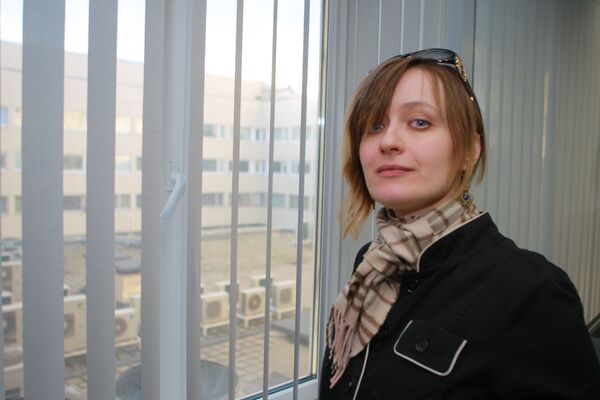People who ask me about Russians in Dubai are always expecting to hear a horror story.
This goes for everyone – including Russians themselves, the non-Dubai-dwelling kind. “I bet it’s horrible!” They declare. “The town is overrun by the worst kind of Russians!”
I was in Dubai during the pre-crisis days of 2007, and so I would appear particularly well placed to tell tales of money-mad, debauched Russians.
Except I’m not. And all of my time in Dubai and elsewhere has only convinced me of one simple, if boring truth: boomtowns attract sleazebags of all nationalities, and regular investors too. In fact, the regular investors tend to be the majority.
Dubai attracts Russian interested in real estate and good weather. This doesn’t make them horrible people. The city is frequently accused of being soulless, but if you hail from Moscow and have some cash to spare, you may find it to be a nice, calm landing pad.
If anything, the Russians attracted to Dubai tend to be much more restrained and chilled out than, say, their British counterparts. At the very least, that’s what it seems like for a social observer such as yours truly.
And yet the requests for horror stories keep coming. On a recent trip to visit old friends, I was waiting for a connecting flight in Munich, and ended up comparing notes with a Ukrainian businessman (the nice, suit-wearing kind, as opposed to the loud kind with a face the color of borsch, since we’re dealing with stereotypes in this column and all) who noticed the fact that I was reading Kommersant and decided he wanted to hang out with a fellow Russian-speaker.
“Everyone back home thinks that in Dubai I go through 30 women a weekend, or something insane like that,” he said. “I tell them: ‘Hey, I have two small daughters, so I don’t get to be sleazy around women. You can’t even think of it once you’re a father.’ And they’re like, ‘But it’s a party-town!’ Yeah, maybe for someone else it is.”
“And I only meet people like myself,” he said. “I used to be an engineer, you know? I wanted to work on space rockets, when I was younger. Now I do what everyone else does, which is try to make money.”
I told him that he’s lucky. Before I got married, every other Eastern European guy I dated was convinced that Slavic women only go to Dubai to sell their bodies.
“My wife doesn’t sell anything over there,” the Ukrainian sighed with mock-despair. “She just buys things. And buys them. And buys them.”
We agreed that Dubai is probably particularly appealing to shoppers from the former Soviet Union due to the fact that its shop assistants tend to be very polite. This may seem like a small thing, but trust me, if you’ve ever interrupted a gaggle of saleswomen sharing their weekend stories at a pricey make-up counter, and been greeted with their icy stares for daring to request “that, um, Givenchy highlighter thing,” and if you’ve had that happen to you more than once in your lifetime, then yes, you may appreciate shopping in Dubai much more.
I’m not much of a consumer, truth be told, and couldn’t picture myself settling down there for the long haul, even if I did suddenly acquire the necessary finances to do just that (let’s face it, you need serious finances to enjoy Dubai).
But when the winter wind howls in the spaces between Moscow’s old and new high-rises, I do think fondly of Dubai. I think about standing on the beach in the sand, the skyscrapers at my back stacked like gazillions upon gazillions of investment dollars, feeling as though this was not just the edge of the sea, but some sudden, gleaming edge in the ebb and flow of history itself.
The views expressed in this article are the author's and do not necessarily represent those of RIA Novosti.
Trendwatching in Russia is an extreme sport: if you’re not dodging champagne corks at weddings, you’re busy avoiding getting trampled by spike heels on public transportation. Thankfully, due to an amazing combination of masochism and bravado, I will do it for you while you read all about it from the safety of your living room.
Natalia Antonova is the deputy editor of The Moscow News. She also works as a playwright – her work has been featured at the Lyubimovka Festival in Moscow and Gogolfest in Kiev, Ukraine. She was borxn in Ukraine, but spent most of her life in the United States. She graduated from Duke University, where she majored in English and Slavic Literature. Before coming to Moscow, she worked in Dubai, UAE and Amman, Jordan. Her writing has been featured in The Guardian, Foreign Policy, Russia Profile, AlterNet, et al.
Trendwatcher: Destroying Football – for the Lulz
Trendwatcher: Lunching with the Enemy
Trendwatcher: The Moscow Grocery Shop of Horrors
Trendwatcher: Marrying Money - of Diamonds and Marital Rape
Trendwatcher: Modernizing Health Care – and Death Care
Trendwatcher: Is Dignity in Death Too Much to Ask?
Trendwatcher: Drunk at 200 km per hour
Trendwatcher: And She Called Me an Ugly American
Trendwatcher: The Other Night, I Met a Man Who Had No Face
Trendwatcher: The Ashes of Beslan

